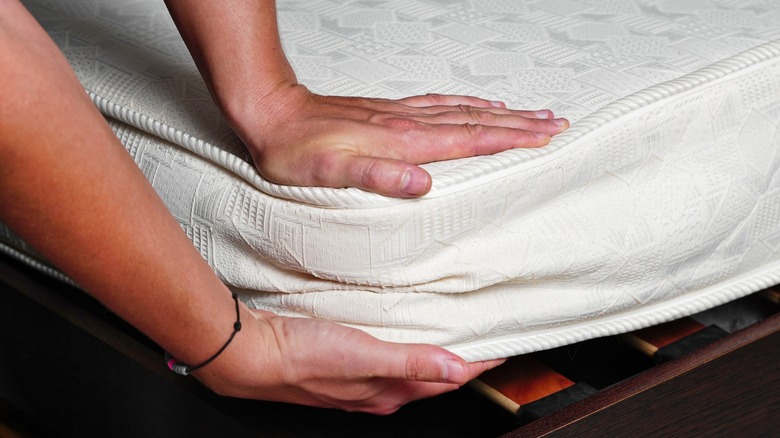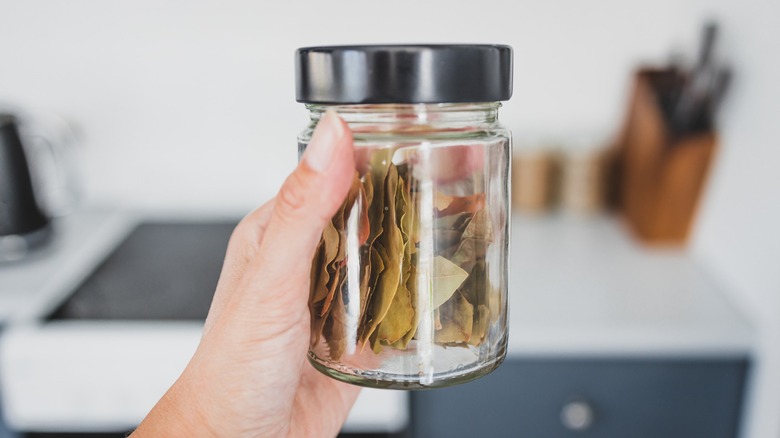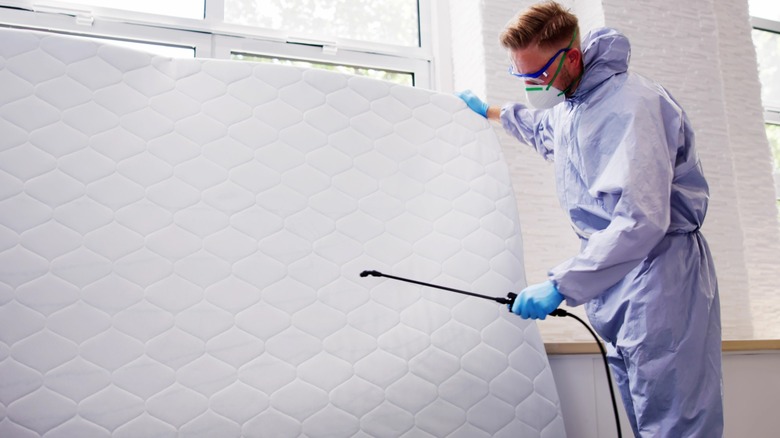Can A Bay Leaf Under Your Mattress Prevent Bed Bugs? Here's What We Found
The internet loves a good home remedy, and quite frankly, so do we. But only when it's backed by science and actually works. One you're probably familiar with is that bay leaves can do far more than season your home-cooked meals. You may have heard that placing a few leaves in your canister of dried grains helps repel pantry pests like weevils and beetles. You may have also heard that tucking a bay leaf under your mattress keeps bed bugs away.
Now, let's separate truth from myth. Bay leaves actually contain aromatic compounds like eugenol and linalool that some insects find unpleasant. This explains why a few leaves in a jar of rice or wheat seem to help. But here's the catch: this only works if your grains are pest-free to begin with. So, think of it as preventive rather than reactive. When it comes to bed bugs, that's where this hack becomes a stretch. There's currently no peer-reviewed research showing that bay leaves are effective for keeping bed bugs at bay.
At this point, you may be wondering: but if someone's tried it and it worked, why can't I? The problem with relying on bay leaves is that it gives you a false sense of security. Meanwhile, it does nothing to actually stop bed bugs from still finding their way into the room. They'll latch on to clothes and furniture. And once they establish themselves on your cozy mattress, they can be notoriously difficult to get rid of.
Why a few bay leaves under the mattress won't keep the bed bugs away
Bay leaves do contain compounds with pesticidal properties. But here's what most online sources leave out: the studies that show those effects use concentrated essential oils, not whole dried leaves. And there's no way a few bay leaves under your mattress can release anywhere near the same level of active compounds as an oil extract in a lab experiment. It's certainly not enough to repel, let alone get rid of bed bugs.
Think of it like an air freshener in your car. At first, the scent is strong, but it fades quickly and needs to be replaced. For a small jar in the pantry, the low concentration works. The aroma is strong enough to discourage small insects like beetles, but not so pungent that it affects the grains. Your bedroom is a completely different situation. It's a large, open space where scent quickly dissipates.
Even if you used dozens of bay leaves—and that's assuming it would even work at all — bed bugs aren't really deterred by smells. What they're drawn to is carbon dioxide and your body warmth, which is why they are drawn to beds with sleeping bodies in them. At best, a bay leaf might make them avoid the exact spot it's sitting on. But the bugs would simply move a few inches over. By the time you realize bay leaves aren't doing the job, you may already have an infestation so bad you have to discard your sheets, mattress, and even furniture.
Here's what you should do instead
The best way to prevent bed bugs is to reduce the chances of them getting into your home in the first place. That starts with you knowing what they actually look like. People often confuse bed bugs with fleas or cockroaches because of how similar they all look. To be sure, check the guide on the US Environmental Protection Agency's website.
When you travel, look out for signs of bed bugs – before settling into a hotel room. Even if you don't spot anything suspicious, keep your luggage away from the bed and walls, never on the floor or bed itself. And when you return home, immediately wash all your clothing (even items you didn't wear) in hot water and dry on high heat for at least 30 minutes. The same applies if you go shopping secondhand. Avoid bringing bed bugs back home with you on your thrift haul.
Now, if they somehow find their way into your home, you may be convinced that since bed bugs are insects, then a strong insecticide should be able to kill them off. Unfortunately, most don't work. According to pest management companies, these insects can literally sit on the surfaces you've sprayed until the chemicals wear off. Extreme heat is your best chance of getting rid of them quickly. But since you need special equipment that goes beyond ordinary space heaters, it's safer and more efficient to get professional help.


